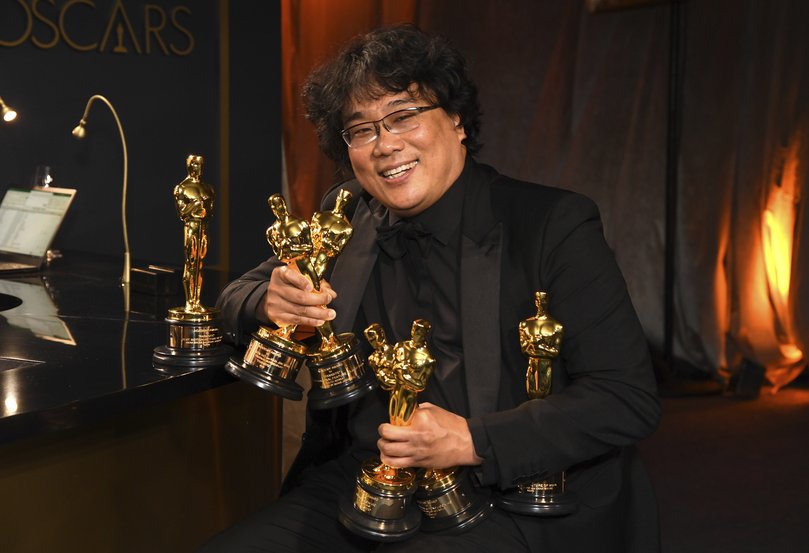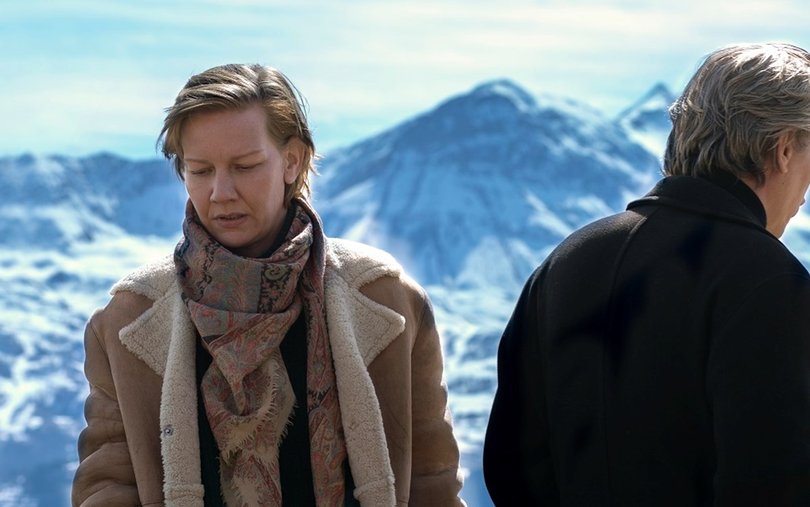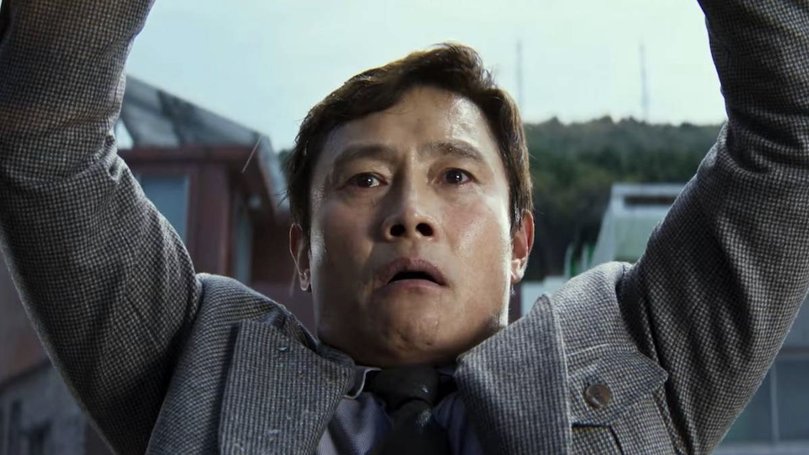Non-English language films are rising in significance in the wider culture
As Bong Joon-ho, if you can get past that one-inch barrier of subtitles, the whole world opens up.

If you’re paying attention to any of the early Oscar buzz, you would have heard the same names being bandied about.
Hamnet and Jessie Buckley. Sinners and Michael B. Jordan. One Battle After Another and Leonardo Di Caprio. The Smashing Machine and Dwayne Johnson. Yes, The Rock is in the Oscar conversation, but, in all honesty, that movie is not that good.
What you might hear less about – or pay less attention to – is the rising number of non-English language movies that enter the thunderdome every year. Not just in the international feature (formerly foreign language) category but in the mainstream awards such as best picture.
Sign up to The Nightly's newsletters.
Get the first look at the digital newspaper, curated daily stories and breaking headlines delivered to your inbox.
By continuing you agree to our Terms and Privacy Policy.In early 2020, when Korean auteur Bong Joon-ho swept the Oscars with Parasite, one of the most consequential films of the 21st century, in one of his acceptance speeches, he said the now-famous line, “Once you overcome the one-inch tall barrier of subtitles, you will be introduced to so many more amazing films”.
Bong was correct, and it seems as if many viewers around the world have answered his call to arms.
Part of that has to do with streaming and the ubiquitous availability of non-English language TV shows and movies including sensations Squid Game, Money Heist and Lupin. There is also increased prevalence, particularly among younger generations, of watching everything with captions on, so subtitles aren’t a stretch.

Although, data out of the US suggested that the vast majority of American Netflix viewers watch non-English language series with a dubbing track rather than the original audio, which is, uh, a choice … the wrong choice … but better than not at all, maybe?
In the five years since Parasite won, every Oscar best picture field has included at least one film that was predominantly not in the English language – Drive My Car (Japanese), All Quiet on the Western Front (German), Anatomy of a Fall (German and French), Emilia Perez (Spanish), I’m Still Here (Portuguese), The Zone of Interest (German) and American films Past Lives and Minari, both of which were primarily in Korean, were all nominated.
Compare that to the five years before Parasite, in which only one non-English language film (Alfonso Cuaron’s Roma) made the cut in best picture.
With an expanded Oscar membership that is more inclusive of voters outside of the US, and with Hollywood abrogating its cultural responsibility to release more original movies in cinemas, non-English language films have become more significant at the Academy Awards, but also with audiences who still opt-in to cinema experiences.

This week, submissions have been finalised for the international feature Oscar category from all over the world, which requires entries to be at least 51 per cent not in English, and produced out of the US.
What’s notable is that among the films put forward, several will be hot contenders for not just the shortlist and final cut of the international feature, but also for the overall best picture prize.
Chief among them is Sentimental Value, Norway’s official entry which has been generating huge buzz since it premiered at the Cannes Film Festival in May, picking up its second most prestigious honours, the Grand Prix.
The film is from Joachim Trier, who caused a splash in 2021 with his off-kilter rom-com The Worst Person in the World. Here, he reunited with his star from that, Renate Reinsve, for a story about a young woman with a fractured relationship with her father, a filmmaker (Stellan Skarsgard).
Sentimental Value, which will be released in Australia on Boxing Day, is an emotionally raw film which explores family relationships, depression and the burden of creative ambition. Skarsgard is sure to be contender in the supporting actor competition, while the film itself could be looking at a best picture nomination.

Next, there’s It Was Just an Accident, which actually won the top prize at Cannes, the Palme d’Or. Made by dissident Iranian filmmaker Jafar Panahi, it’s a twisty thriller about a former political prisoner and mechanic who suspects a customer might be the guard who previously tortured him.
A modern parable about repression in Iran, It Was Just an Accident was submitted to the Oscars by France (a French outfit co-produced it) because, obviously, Panahi’s home country doesn’t like culture which is critical of its rule.
Along with Bong, Park Chan-wook is arguably one of two of South Korea’s most famous filmmakers, and his new film, No Other Choice, is exactly the kind of biting social satire you expect from the man who made Oldboy, Decision to Leave and The Handmaiden.
No Other Choice premiered at Venice to rave reviews (and not just that meaningless standing ovation counter) for its uproarious and uncomfortably dark story about a company man who takes extreme measures to secure another job after he’s let go from his. Squid Game villain Lee Byung-hun is the lead.

Brazil had great success last year with political drama I’m Still Here, winning a best actress for gong for Fernanda Torres, and it will be looking to follow up with The Secret Agent, which stars Narcos star Wagner Moura as a teacher fleeing persecution during the country’s brutal military dictatorship.
There’s also Orphan, the latest film from Hungarian director Laszlo Nemes, whose 2015 feature Son of Saul remains widely respected.
There should be considerable interest around Israeli entry The Sea, centred on a 12-year-old Palestinian boy trying to reach the Mediterranean, who encounters resistance from IDF soldiers at military checkpoints.
The Sea was selected as the automatic entry after it won the Ophir Awards, which led to the Israeli government’s culture minister, Miki Zohar, to condemn the choice and threaten to withdraw funding of the national film awards.

